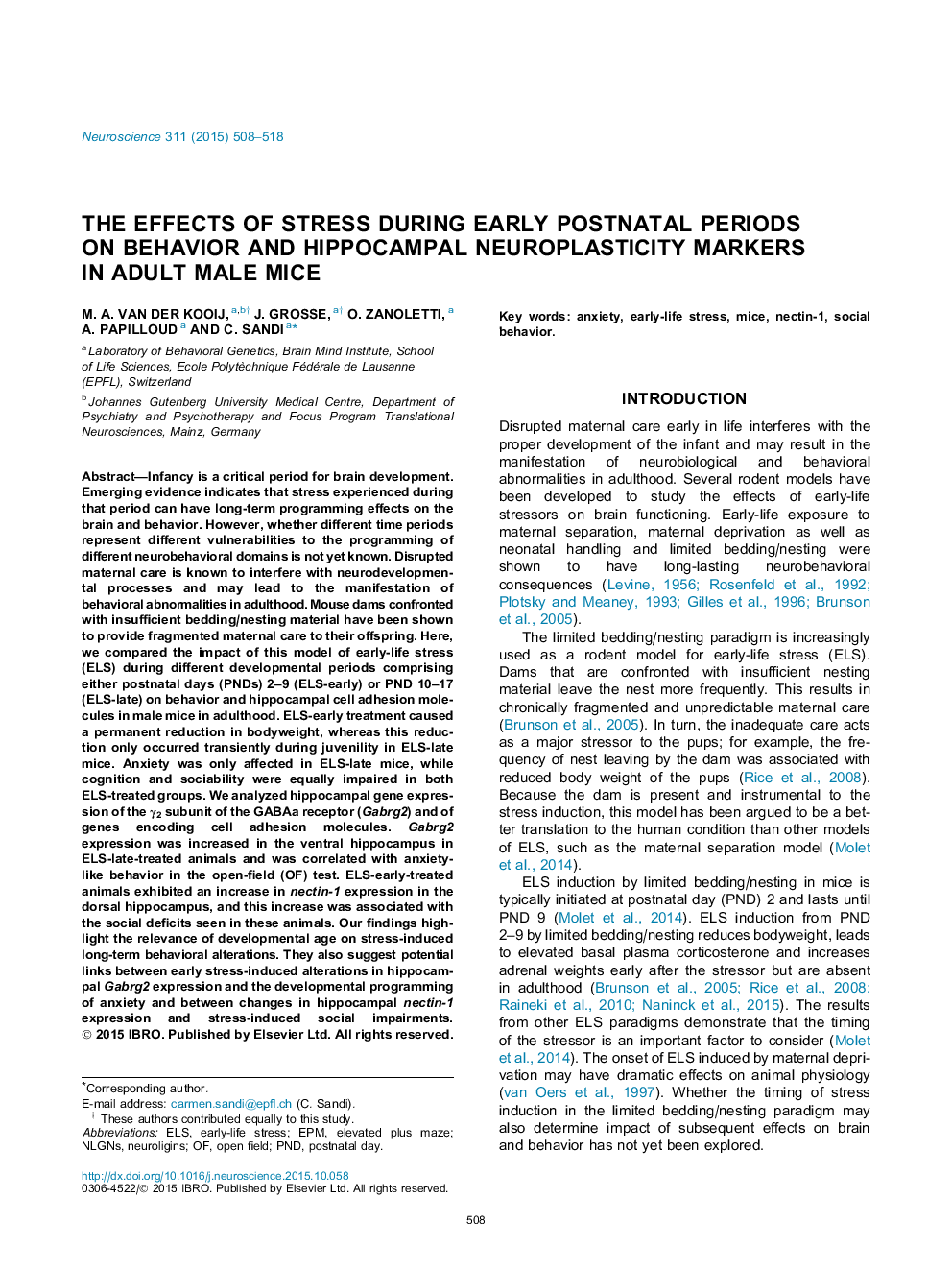| Article ID | Journal | Published Year | Pages | File Type |
|---|---|---|---|---|
| 6271664 | Neuroscience | 2015 | 11 Pages |
â¢Early-life stress (ELS) in male mice reduced adult cognition and sociability.â¢Social deficits in ELS-early-treated adult mice correlate with Gabgr2 expression in the ventral hippocampus.â¢Anxiety in adulthood is enhanced in ELS-late-treated mice and correlates with nectin-1 expression in the dorsal hippocampus.
Infancy is a critical period for brain development. Emerging evidence indicates that stress experienced during that period can have long-term programming effects on the brain and behavior. However, whether different time periods represent different vulnerabilities to the programming of different neurobehavioral domains is not yet known. Disrupted maternal care is known to interfere with neurodevelopmental processes and may lead to the manifestation of behavioral abnormalities in adulthood. Mouse dams confronted with insufficient bedding/nesting material have been shown to provide fragmented maternal care to their offspring. Here, we compared the impact of this model of early-life stress (ELS) during different developmental periods comprising either postnatal days (PNDs) 2-9 (ELS-early) or PND 10-17 (ELS-late) on behavior and hippocampal cell adhesion molecules in male mice in adulthood. ELS-early treatment caused a permanent reduction in bodyweight, whereas this reduction only occurred transiently during juvenility in ELS-late mice. Anxiety was only affected in ELS-late mice, while cognition and sociability were equally impaired in both ELS-treated groups. We analyzed hippocampal gene expression of the γ2 subunit of the GABAa receptor (Gabrg2) and of genes encoding cell adhesion molecules. Gabrg2 expression was increased in the ventral hippocampus in ELS-late-treated animals and was correlated with anxiety-like behavior in the open-field (OF) test. ELS-early-treated animals exhibited an increase in nectin-1 expression in the dorsal hippocampus, and this increase was associated with the social deficits seen in these animals. Our findings highlight the relevance of developmental age on stress-induced long-term behavioral alterations. They also suggest potential links between early stress-induced alterations in hippocampal Gabrg2 expression and the developmental programming of anxiety and between changes in hippocampal nectin-1 expression and stress-induced social impairments.
